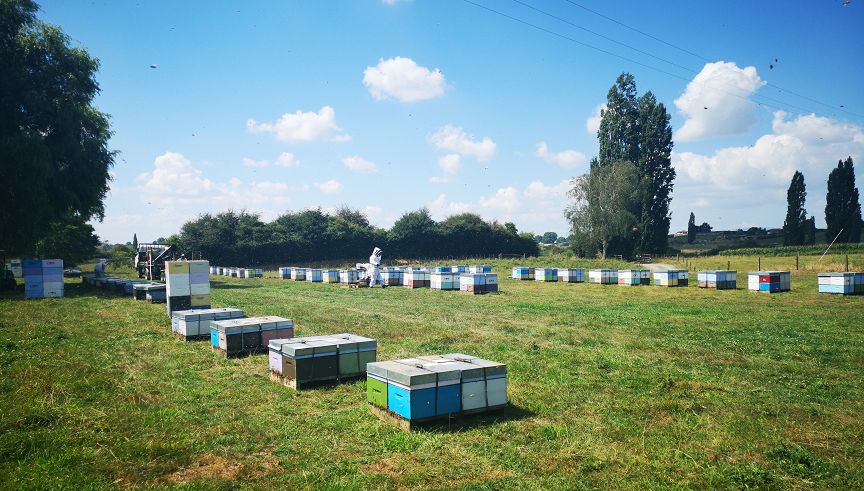A Guide On Beekeeping This Autumn
Bees work tirelessly throughout the warmer months to forage for nectar and produce honey. But as the days grow colder, bees are settling down for the winter, and a change in bee activity calls for a change in beekeeping practices. We’ve outlined a checklist for this autumn season to help you prepare your bees for a safe and cosy winter.
Autumn patterns
In March, as your bees wind down for winter, you can expect egg production to slow, your brood nest to shrink and drones to be forced out of the hives. By April, honey production slows down and egg production tapers off before becoming minimal in May when the queen will lay just enough eggs to maintain population over winter.
Requeen your brood
As a general rule, you should requeen once every one to two years. If you are thinking of requeening, a good time to do it is towards the end of summer before it gets too cold. That’s why many beekeepers choose to requeen at the beginning of autumn when feed is readily available and the days are warmer.
Be aware of pests
You may see a few unwanted visitors during autumn. It’s vital to stay on top of them, as colonies that have diseased bees are less likely to survive the winter months.
Mice
Capable of squeezing into the tiniest of spaces, mice may be attracted to a warm hive filled with food and could become an issue in the colder months. To ensure your colonies are safe, you may want to put mouse traps on the front, pin the varroa floor at the back of the hive and reduce openings so they’re only large enough for bees to enter.
Wasps and robbing bees
There are a few things you can do to keep wasps and robbing bees out of your hives – try a robbing screen, or shrink your hive entrances so they can’t get in. A long-term solution is to grow plants with scents that naturally repel wasps, such as eucalyptus, mint, and citronella. Make sure there are no food scraps around your hive, as these are appealing to wasps.
Throughout autumn, check your hives regularly for signs of other diseases, like Tracheal Mites or American Foul Brood. You can refer to our article on signs of pests and diseases and how to treat them here.
Check food supplies
To keep your bees alive and give them extra energy through winter, you’ll need to check that there is sufficient honey for them to eat. Heading into winter, the colony needs between 10 and 25 kilograms of honey, depending on where you live – they’ll need more in colder areas.
Position the honey frames at either end of your brood box, with brood frames clustered together in the middle so bees have easy access. If honey supplies are low, you can temporarily feed your bees by giving back their honey or providing a simple sugar syrup. Do this earlier in the season and remove it by May – you don’t want to feed the bees sugar syrup in the winter.
Clean up the hives
During autumn, it’s a good idea to clear up around your colonies. Check that hive entrances are free of weeds and debris, and consider moving hives to a sunnier spot.
Now is a good time to harvest the last of any surplus honey, and remove extra supers and brood boxes so bees have just one or two for winter. If bees are left with too much space during winter, they may struggle to maintain it and keep it warm, wasting valuable energy stores.
Final pre-winter prep
In winter, your bees will be trying to keep warm. Set up a windbreak if necessary, or place insulite boards under the hive cover to keep the colony dry. Do a final, thorough inspection of your hives to ensure they provide a safe and warm space for the bees throughout winter, and prepare your boxes, frames and equipment for next season. From this time, only check your hives from the outside – wait until it’s warmer to open them.
Bee prepared for winter
Autumn is the best time to sort your hives and get organised for the colder months. Give your bees the best chance of survival and ensure they thrive next season.
Want to find out more about how to care for your bees throughout the seasons? Check out our other Seasonal articles Winter, Spring, Summer

